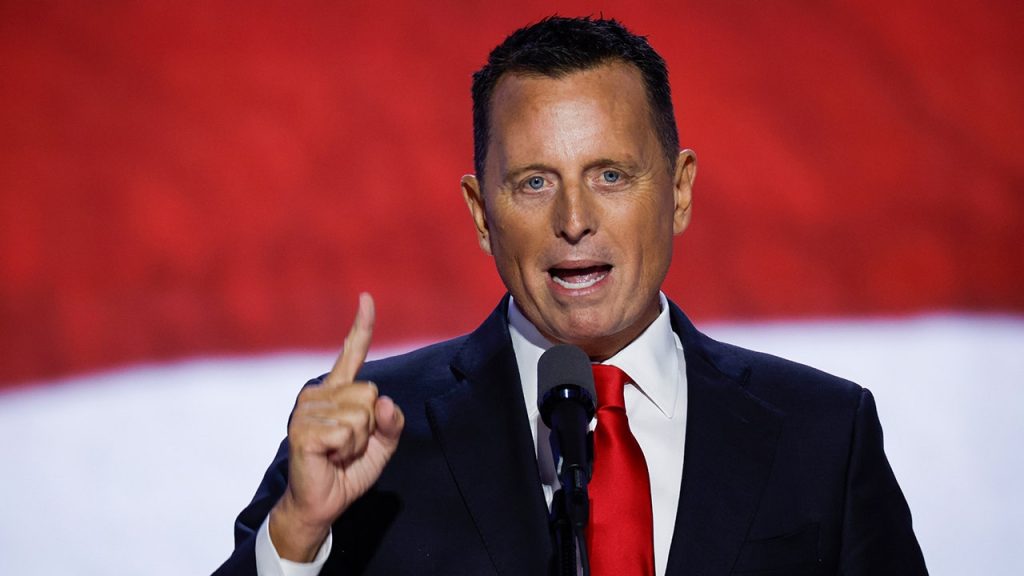1. Grenell’s Reappointment: A Signal of Continuity and Renewed Focus on Global Hotspots
Richard Grenell’s nomination as presidential envoy for special missions marks a significant move by President-elect Trump, signaling a continuation of his first-term foreign policy approach while also highlighting a renewed focus on specific regions of strategic importance. Grenell, a seasoned diplomat and intelligence official, served as Trump’s ambassador to Germany, acting Director of National Intelligence, and presidential envoy for Kosovo-Serbia negotiations during the first term. His extensive experience in international affairs, particularly his eight years within the United Nations Security Council dealing with North Korea and other nations, positions him as a key player in shaping the administration’s policies in some of the world’s most challenging areas, notably Venezuela and North Korea. Trump’s explicit mention of these two countries underscores their prominence on the incoming administration’s agenda.
2. Grenell’s Expertise and Track Record: A Blend of Diplomacy and Intelligence
Grenell’s background combines diplomatic experience with intelligence expertise, making him a unique asset in navigating complex international situations. His tenure as ambassador to Germany, a crucial US ally, provided him with firsthand experience in managing bilateral relations within a complex geopolitical landscape. As acting Director of National Intelligence, Grenell gained insights into the intricacies of intelligence gathering and analysis, which will be invaluable in assessing threats and opportunities in regions like Venezuela and North Korea. Furthermore, his role as presidential envoy for Kosovo-Serbia negotiations demonstrated his ability to engage in high-stakes diplomacy, seeking resolutions to long-standing conflicts. This diverse experience equips him to handle the multifaceted challenges inherent in the special missions portfolio.
3. Walsh’s Nomination: Bridging Business Acumen and Public Service
Edward Sharp Walsh’s nomination as U.S. ambassador to Ireland introduces a figure with a strong background in business and philanthropy to the diplomatic arena. As president of the Walsh Company, a successful nationwide construction and real estate firm, Walsh brings a wealth of experience in managing complex projects and navigating the intricacies of the business world. His philanthropic endeavors in his local community demonstrate a commitment to public service and a desire to contribute beyond the realm of commerce. His previous role as chairman of the New Jersey Schools Development Authority Board further highlights his experience in public sector initiatives, demonstrating his ability to work within governmental structures. These qualities position Walsh to foster strong US-Ireland relations, building on the existing ties between the two countries.
4. The Strategic Importance of the Appointments: Addressing Key Foreign Policy Challenges
The appointments of Grenell and Walsh address key foreign policy priorities for the incoming administration. Grenell’s focus on Venezuela and North Korea signals a continued emphasis on addressing challenges posed by authoritarian regimes. Venezuela’s ongoing political and economic crisis, coupled with its potential to destabilize the region, demands focused diplomatic attention. North Korea’s nuclear ambitions and its unpredictable behavior remain a significant security concern requiring a nuanced approach. Walsh’s appointment to Ireland, a close US ally and a key partner in transatlantic relations, underscores the importance of maintaining strong diplomatic ties with European nations. Ireland’s role in the European Union, its unique relationship with the United Kingdom in the context of Brexit, and its economic ties with the US make this ambassadorship a critical component of the administration’s overall foreign policy strategy.
5. Senate Confirmation: A Potential Hurdle for the Nominations
While the president-elect has put forward these nominations, their ultimate confirmation rests with the Senate. The Senate confirmation process can be complex and often politically charged, particularly for high-profile positions like these. Grenell’s previous roles in the Trump administration may subject him to intense scrutiny from senators, requiring him to defend his record and articulate his vision for the new role. Walsh, as a newcomer to the political arena, will likely face questions about his qualifications and his understanding of the complexities of international diplomacy. The Senate’s political composition and the dynamics between the executive and legislative branches will significantly influence the confirmation process.
6. Looking Ahead: The Broader Context of the Trump Administration’s Foreign Policy
The Grenell and Walsh nominations are part of a larger picture, reflecting the incoming Trump administration’s overall approach to foreign policy. The administration’s emphasis on "America First" principles, its focus on bilateral relationships, and its skepticism towards multilateral institutions are likely to shape the direction of US foreign policy in the coming years. The appointments also signal a preference for individuals with demonstrated loyalty and alignment with the president’s worldview. As the administration takes shape, these nominations offer insights into the key players and priorities that will guide US engagement with the world. The challenges and opportunities facing the US on the global stage will demand skillful diplomacy, strategic thinking, and a deep understanding of international affairs. The success of these nominees, should they be confirmed, will depend on their ability to navigate these complexities and advance US interests effectively.

